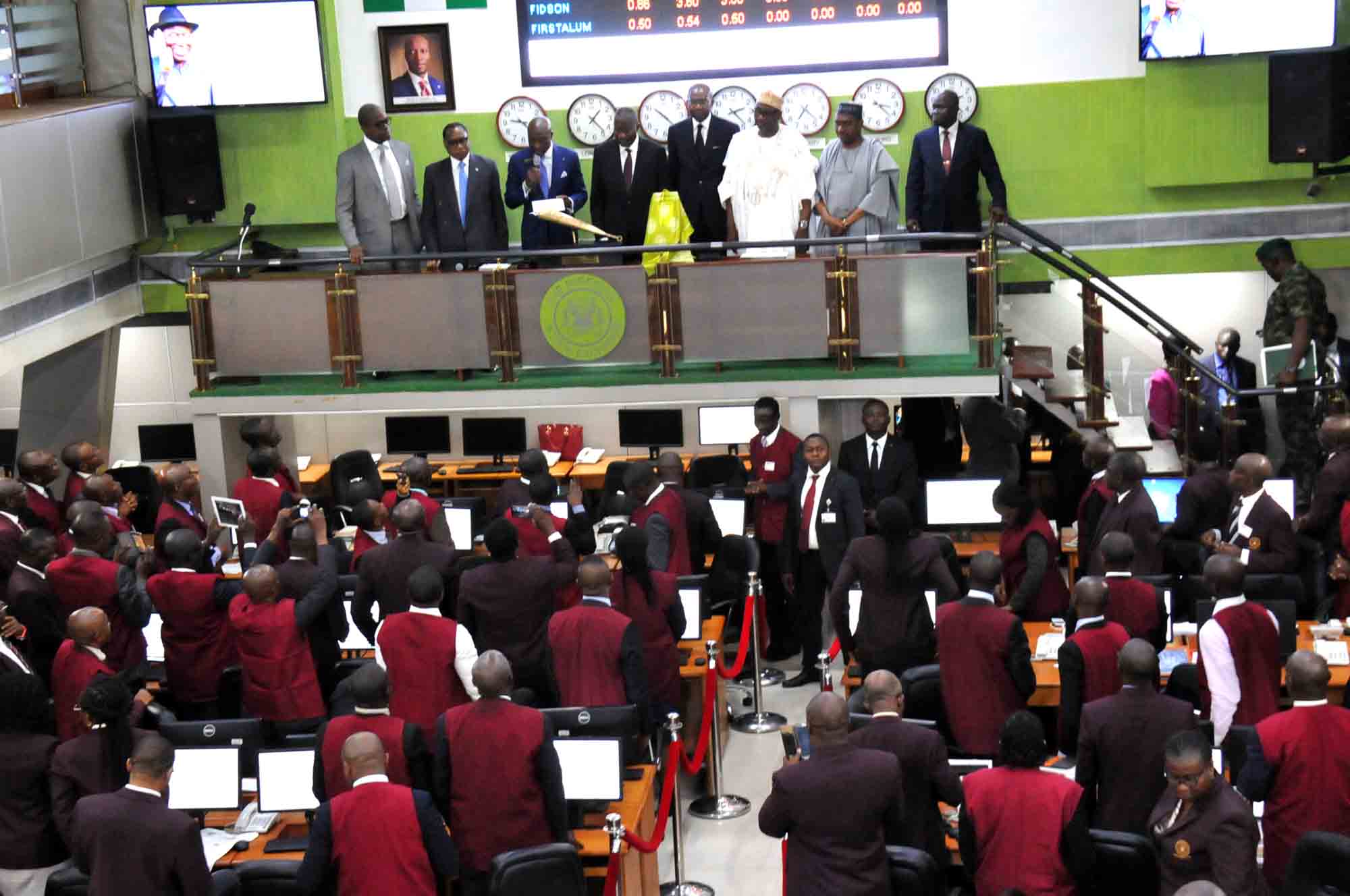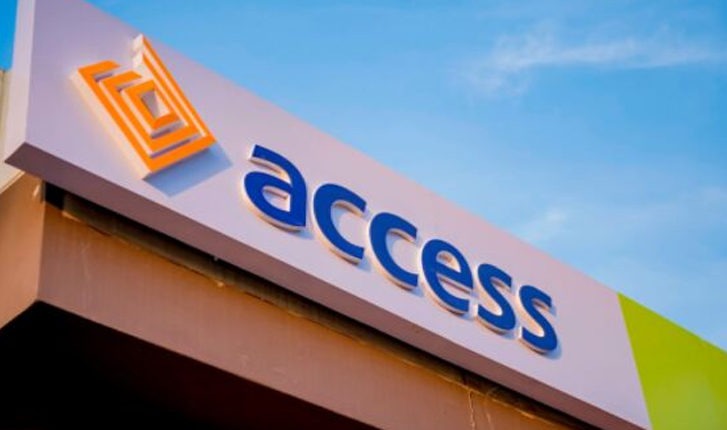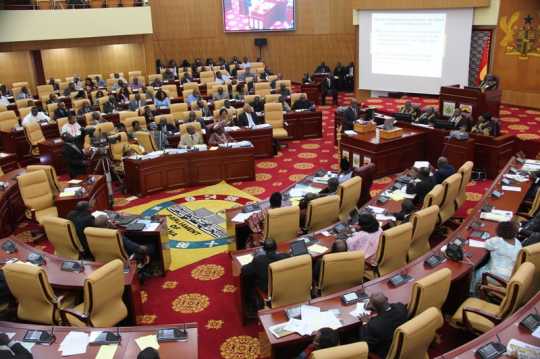- Investors Lose N432bn as Stocks Value Drops
The value of shares held by investors in the Nigerian capital market (equities category) fell by N432bn in the third quarter of 2016 when compared with the performance of the market in the second quarter.
Within the space of three months, investors in the Nigerian capital market have lost N432bn, statistics from the Nigerian Stock Exchange have indicated.
The data specifically showed that the NSE’s market capitalisation slid from N10.165tn to N9.733tn in the third quarter of 2016.
Experts said the continued drop in the value of most equities in the nation’s capital market must have dampened the spirits of investors.
Between September 28, 2015 and September 28, 2016, the NSE’s market capitalisation dropped by N873bn from N10.572tn to N9.699tn. The All-Share Index also fell to 28,236.23 basis points from 30,762.29 basis points.
There was also a significant drop in the volume of transactions in the market, as this dropped to 159.046 million from 266.652 million.
In the same vein, the value of market transactions and deals plummeted; compared to last year’s figures. In 2015, while the value of transactions and market deals stood at N3.179bn and 3,366, respectively, the figures dropped to N1.454bn and 3,237, respectively in the third quarter of 2016.
Experts noted that the fall of the nation’s capital market indices had persisted for some period.
For instance, between August and September this year, the stock market recorded a drop in liquidity to the tune of N0.411bn.
The drop reflected on the volume and value of shares traded in the period under review, which also plummeted.
The NSE ASI as of June 30, 2016 was 29,597.79 basis points; but at the close of the third quarter (September 30), the NSE ASI stood at 28,335.40.
There was a slide in the turnover of shares traded on the floor of the NSE during the period under review. For instance, the third quarter report showed that a total of 1.183 billion shares worth N10.300bn in 16,522 deals were traded in September 2016 by investors.
This, however, was in contrast with a turnover of 1.361 billion shares worth N10.711bn in 16,070 deals traded in August 2016 by investors on the Exchange’s floor.
Share turnover is a measure of stock liquidity calculated by dividing the total number of shares traded over a period by the average number of shares outstanding for the period. Thus, the lower the share turnover, the less liquid the shares of companies quoted on the Exchange, vice versa.
The National Bureau of Statistics had in the second quarter of this year said the country recorded its lowest investment inflow in nine years.
The participation of foreign investors in the NSE fell by 15 per cent between January and February this year, according to data from the bourse.
The NSE had put the level of participation by the foreigners at 51.57 per cent for January 2016. But in February 2016, the number dropped to 36.48 per cent.
Investors in the country’s capital market (equities category) lost over N1.053tn in the first quarter of 2016.
Within three months (January to March), the equities market had depreciated by 10.79 per cent, according to the NSE data.
As of the first day of trading this year (January 4), the NSE’s market capitalisation stood at N9.757tn, while the ASI was 28,370.32 basis points.
But as of the last day of trading in the first quarter of 2016 (March 31), the market capitalisation and ASI had crashed to N8.704tn and 25,306.22 basis points, respectively.
In the light of these developments, the Chartered Institute of Stockbrokers said although Nigeria had been an attractive domain for investment, there was the need for well-thought-out policies to drive businesses and the economy at large.
The institute said foreign investors would be further encouraged if the country could be consistent with its monetary policies in line with the global best practices.
It noted that the participation of local investors remained very critical to the growth of the market, adding that they (local investors) were the people that would bring stability to the equity market.
Commenting on the current market situation, the Chief Executive Officer, Alpha African Advisory, Sanyade Okoli, said the Nigerian equities market lacked the needed depth.
According to her, the market needs a significant inflow of funds to make it relatively stable to withstand traditional shocks that will always confront it.
She stressed that the market had yet to recover from the global financial crisis of 2007/2008 given its current value.
A former Managing Director, Asset Management Corporation of Nigeria, Mustafa Chike-Obi, in an interview, said the value of most equities in the country’s capital market had significantly been eroded, leaving most investors with little or nothing in terms of investment worth.
This development, he noted, had given rise to investor scepticism as far as the Nigerian equity market was concerned.
He described the situation as pathetic and grave, saying all stakeholders must come together to decide the way forward and redirect the trends in the market.
Chike-Obi said the beating the stock market had received would be better understood if the stock market value could be graded in dollar terms, considering the current foreign exchange rate.
“There is the need to encourage investors. Nobody is going to put their money in a place where they will lose the money. This is one thing that must be changed for us to move forward,” he added.


 Naira4 weeks ago
Naira4 weeks ago
 Billionaire Watch4 weeks ago
Billionaire Watch4 weeks ago


 Naira4 weeks ago
Naira4 weeks ago


 Naira3 weeks ago
Naira3 weeks ago




 Naira3 weeks ago
Naira3 weeks ago




 Naira3 weeks ago
Naira3 weeks ago




 Naira2 weeks ago
Naira2 weeks ago
 Commodities3 weeks ago
Commodities3 weeks ago





















